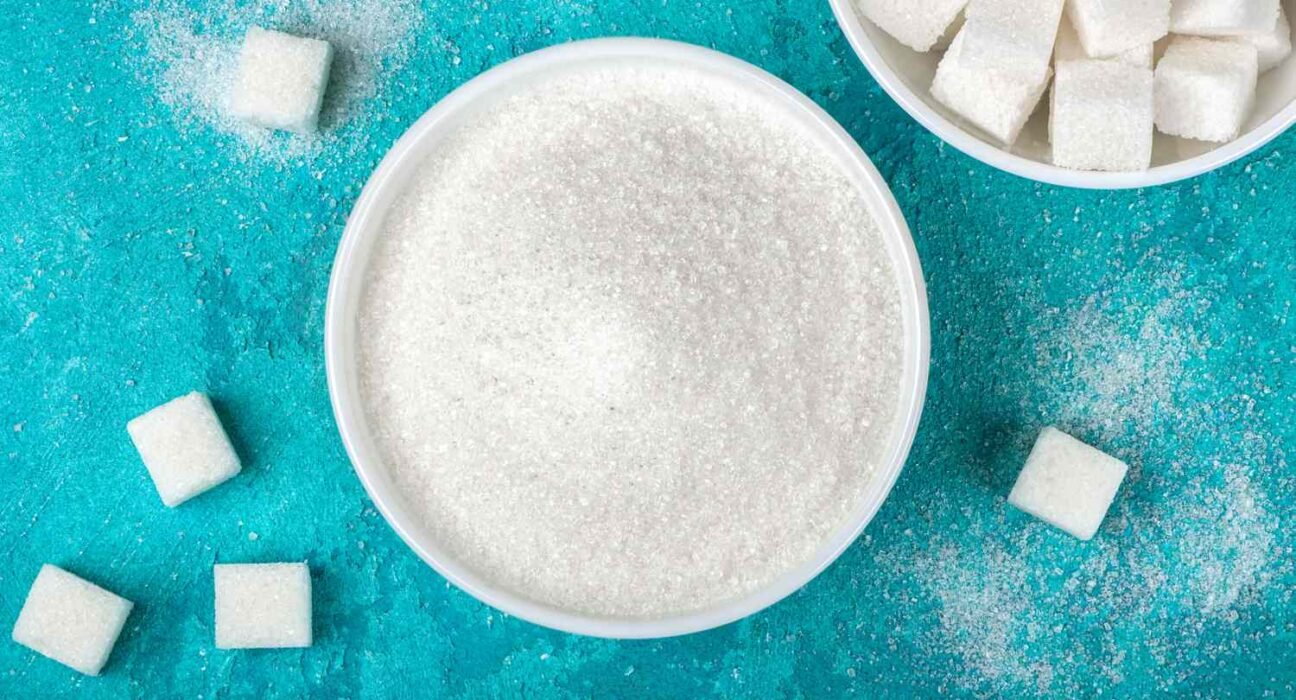:max_bytes(150000):strip_icc():format(jpeg)/VWH-GettyImages-1255876755-c51c8ce85f1042ca89896a9fd8e1810d.jpg)
Sugar, or glucose, is a major source of energy for the body, but consuming too much or too often can have negative health effects. Sugar begins entering your bloodstream within minutes of eating and typically clears from your system within two to three hours, although the exact timing varies individually and depends on several factors.
Jump to Key Takeaways.
What Happens When You Eat Sugar?
When you eat or drink something with sugar, your digestive system quickly goes to work:
- Carbohydrates (carbs) are broken down into a simple sugar called glucose in the small intestine.
- Glucose is then absorbed into the bloodstream.
- Blood sugar levels begin to rise, signaling the pancreas to release insulin (a hormone).
- Insulin helps move glucose (sugar) from your blood into your cells, where it’s used for energy or stored for later use.
The speed at which sugar enters the bloodstream depends on the type and food source of the sugar. For example, simple sugars found in candy or soda are quickly digested and can cause a spike in blood sugar within 15 to 30 minutes.
In comparison, carbs or sugars from whole foods, such as whole grains or dairy products, are digested more slowly due to their fiber or protein content, resulting in a more gradual rise in blood sugar levels.
How Long Does Sugar Stay in the Bloodstream?
For a generally healthy person:
- Blood sugar levels start to rise within minutes of eating and usually peak about 60 minutes later.
- The body then begins to bring levels back down, typically returning to baseline within two to three hours after eating.
- This process may take longer if you eat a large meal high in carbohydrates, especially if they are made up of refined carbs or added sugars.
If you have insulin resistance, prediabetes, or diabetes, your body may not process sugar as efficiently:
- This can lead to prolonged elevated blood sugar levels that may last several hours or more.
- In some people with diabetes, it may take even longer for blood sugar to return to normal, depending on the type and amount of food eaten, medications, and other health factors.
Where Does the Sugar Go?
After insulin helps glucose remove from the bloodstream, your body will use it for different functions, depending on its needs:
- Once glucose enters your cells, it is either used immediately for energy or stored for later use.
- Some of it is stored in the liver and muscles as glycogen.
- If glycogen stores are full and you’re not burning energy through physical activity, the excess sugar can be stored as fat.
This is why frequent high-sugar intake can contribute to weight gain and metabolic issues over time.
What Affects How Long Sugar Stays in Your System?
Several factors play a role in how quickly your body processes sugar:
- Meal composition: Meals with fiber, fat, or protein slow down the absorption of sugar, leading to a slower rise and fall in blood sugar levels.
- Physical activity: Moving your body helps use up glucose more efficiently, lowering blood sugar levels faster.
- Metabolic health: People who are more insulin sensitive process sugar more quickly than those with insulin resistance or diabetes.
- Age and weight: Older adults or those with overweight or obesity may have a slower metabolic response to sugar or be more insulin resistant.
- Stress and sleep: Lack of sleep or high stress levels can impair how your body handles sugar, keeping levels elevated longer.
Can Sugar Be “Flushed Out”?
There’s a common belief that you can “flush out” sugar by drinking water or through detoxing. While staying hydrated supports proper kidney function and overall health, it doesn’t instantly remove sugar from your bloodstream:
- The body needs time to process sugar naturally through the actions of insulin and cellular uptake.
- However, drinking water, exercising, and eating balanced meals can all support your body’s efforts to regulate blood sugar more effectively.
- These lifestyle habits can also help prevent sugar from lingering in your system for too long.
How to Help Your Body Process Sugar More Efficiently
If you’re trying to balance blood sugar levels, prevent spikes, and reduce how long sugar stays in your system, here are a few helpful tips:
- Eat balanced meals: Pair carbs with protein, fiber, and/or healthy fats to slow digestion and sugar absorption.
- Stay active: A short 10-minute walk after eating can help muscles absorb glucose more quickly.
- Avoid sugary drinks: Sugar from soda or juice is rapidly absorbed, causing sharp spikes in blood sugar.
- Watch portion sizes: Even healthy carbs can raise blood sugar levels if eaten in large amounts.
- Monitor your individual response: If you have diabetes or other blood sugar concerns, check your levels to learn how different foods affect you.
Key Takeaways
- Your body starts processing sugar within minutes of eating, and it usually peaks in the blood around 60 minutes, returning to baseline in two to three hours for most healthy individuals.
- Factors like meal composition, activity levels, metabolic health, and medications affect how long sugar stays in your system.
- Balanced meals and regular movement help your body process sugar more efficiently and maintain stable blood sugar levels.

